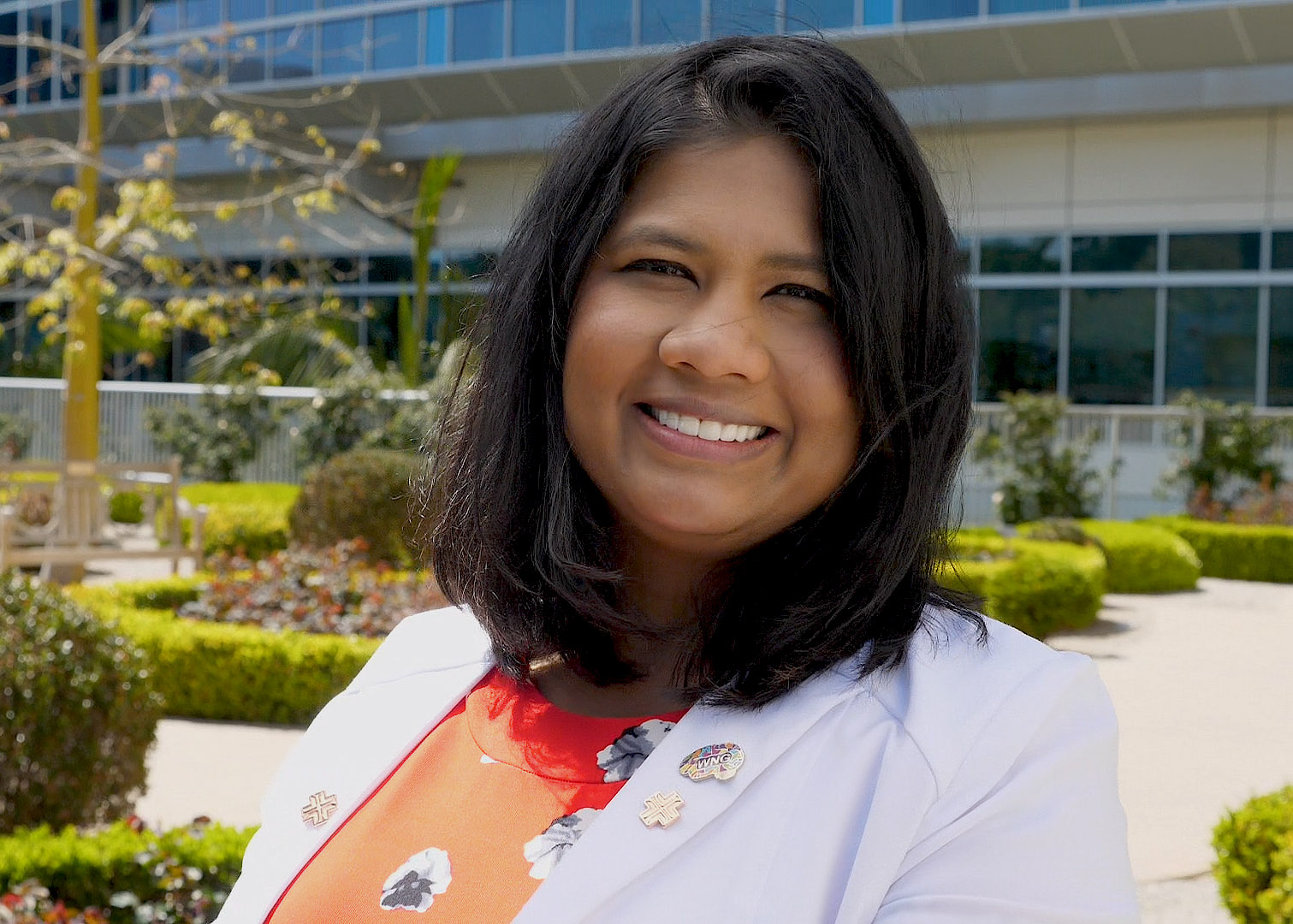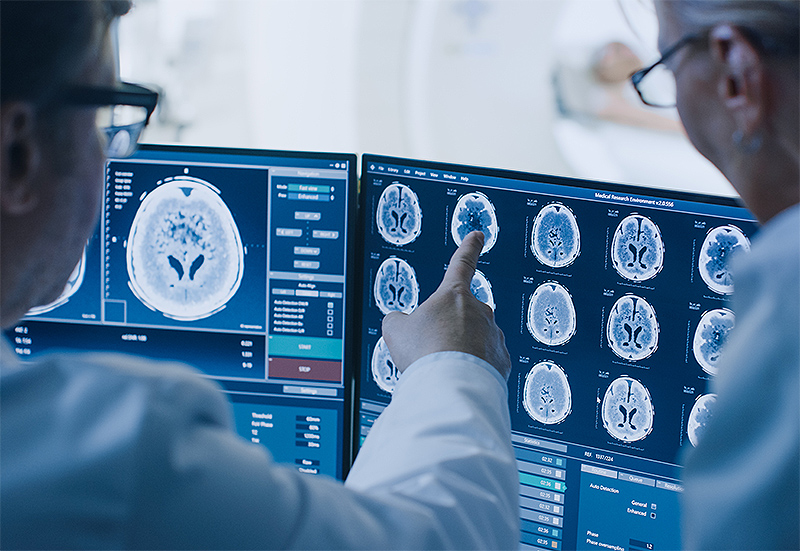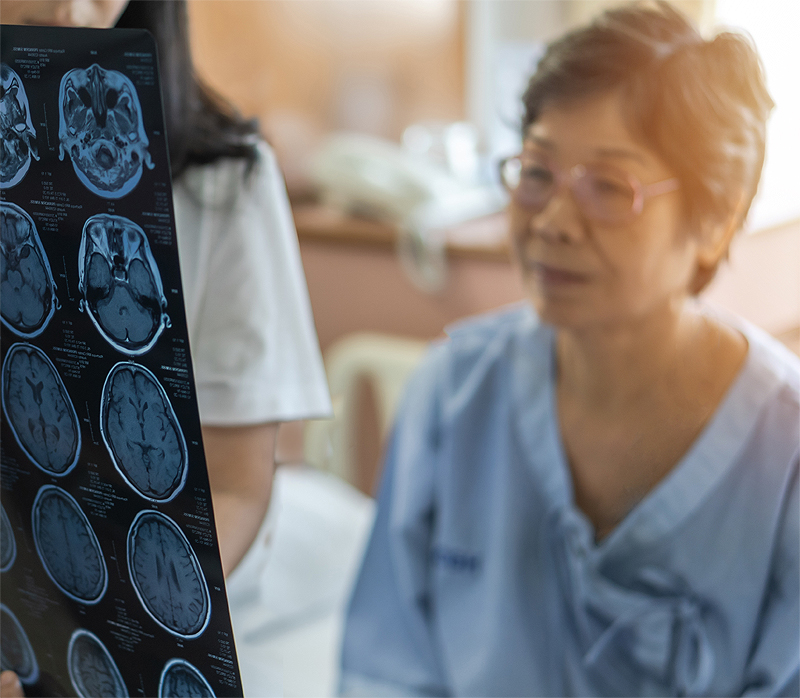
Dr. Akanksha Sharma of PNI lends her expertise to Brain Tumor Awareness
Let’s have a conversation about the brain. We rarely discuss brain tumors until it is time to understand conditions and symptoms. So, let’s get started.
Why not be able to carry a conversation armed with information directly from an expert? Dr. Sharma, a neuro-oncologist at Pacific Neuroscience Institute, and assistant professor of neurosciences at St John’s Cancer Institute is highly experienced in identifying, treating, and caring for patients with brain tumors. In her video interview, she provides a wealth of information regarding brain tumors. Such knowledge can help a family member, a friend, or inspire further medical evaluation for oneself. Amazingly, Dr. Sharma is just a phone call away for all your brain tumor questions.
Who’s getting brain tumors?
There are other considerations including being male or female, or if cancer has originated somewhere else in the body. Dr. Sharma explains that there is nothing you did, or didn’t do, to have gotten a brain tumor.
What is a secondary brain tumor?
Dr. Sharma illustrates that brain tumors can be the result of other cancers that have developed into later stages. “Lung, breast, melanoma, and kidney cancer,” she explains, can result in brain metastasis if not managed effectively. Meaning, it can originate in one of those areas of the body, then due to an extended amount of time, and without mitigating treatment, can spread to the brain—a secondary cancer. So considering if those cancers are caught early, or not, there is an increased risk for brain tumors if you have one of those cancers in its later stage, raising the severity and complexity of treatment and prognosis. Interestingly, while women may present with brain tumors more often, men tend to have the kind of tumor that is malignant, or cancerous.
Brain Tumor Awareness Facts, Symptoms & Treatment: Meet Akanksha Sharma, MD, Neuro-oncologist at PNI
Dr. Sharma reveals identification and symptoms relating to brain tumors.
Our goal here is to help support the patient and their family and improve their quality and quantity of life.
– Akanksha Sharma, MD
What are the symptoms of brain tumors?
Thankfully, identifying symptoms of brain tumors is possible, though it depends on the tumor’s size and location. Dr. Sharma explains how the following signs could be an indication there is a tumor-related problem:
- New or worsening headaches that do not go away as you would expect
- Headaches that change when lying flat compared to sitting up
- Unexplained nausea or vomiting
- Weakness on one side of the body
- Numbness or tingling sensation in the limbs
- Trouble with speaking or comprehension
- Changes in behavior or personality
- Experiencing seizures, though rare
Putting the right team together
If there is a need to treat or remove a brain tumor, a treatment plan is developed by a multi-disciplinary team of experts, each contributing to the ideal outcome for the patient. Dr. Sharma reveals how surgical oncology, pathology, radiology, radiation oncology, immunology, and medical oncology may all become involved in the treatment plan to be “personalized and individual for every single patient.” Dr. Sharma explains how clinical trials can provide greater access to treatments that have yet to be approved by the FDA but have been demonstrated to be effective in their application.
I serve as Site Principal Investigator for many of these trials.
– Akanksha Sharma, MD
Dr. Sharma further explains that clinical trials give our patients “new opportunities.” Her research also focuses on how to improve the patient’s quality of life because brain tumors affect every part of one’s being, while there are physical, emotional, social, and financial implications to care.
Learn more
Dr. Sharma is part of the Pacific Neuroscience Institute and treats patients at the Saint John’s Health Center in Santa Monica, California.
For more information, please call (310) 829-8265.
MD Bio:
https://www.saintjohnscancer.org/about-us/people/akanksha-sharma-m-d/
More about PNI and brain-related conditions:
https://www.pacificneuroscienceinstitute.org/



